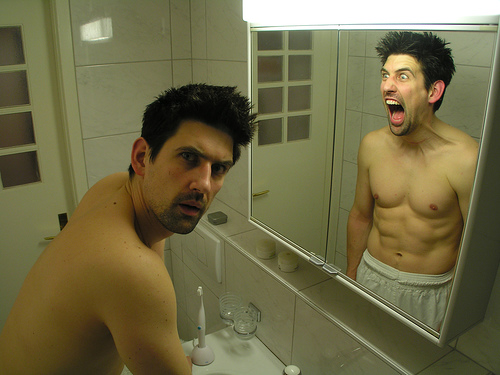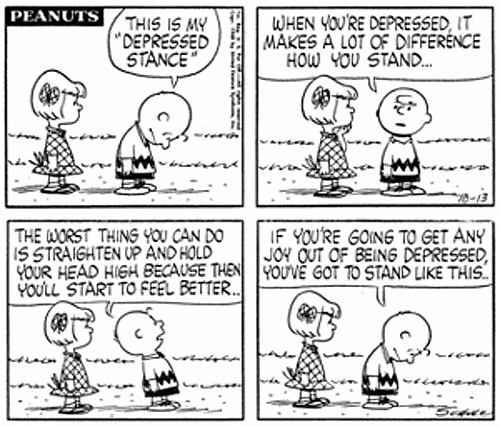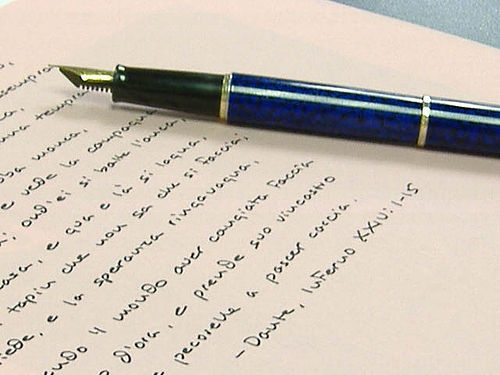How To Be Confident
Confidence is a funny thing. It comes in two flavours. How confident other people believe you are, & how confident you feel internally. The two are related, but not necessarily linked. E.g., it’s quite common that other people see us as more confident than we may actually feel.
So how do you go about becoming more confident?
Well, there’s a bunch of physical attributes: head up, shoulders back, firm eye contact, firm handshake, steady voice. None of this is new or complicated. You can read more about it here & here.
Changing your posture does change your emotional state, so by all means do the physical stuff as well (it’ll help how you feel), but I’m going to talk about working directly on the non-physical stuff.
Let’s start with the easy side of things – how we’re perceived externally. Other than posture, how do other people assess how confident we are?
By our speech. What we say, how we say it, the words we use.
I got to thinking about this when reading Jeannette Maw’s excellent Good Vibe Blog. She was talking about wiping out wimpy words. Words that disempower us, make us sound wishy washy, limit us.
These are all words & phrases that will make us seems significantly less confident than we may actually be.

pic by nnn27
What are some examples?
- Hopefully
- Probably
- Should
- I suppose
So, my hypothesis is, if we stop using these kinds of words, we’ll appear (externally) more confident.
Well, that sounds worth doing, but wait up a second. Before we rush into this, let’s think a little.
Who do we talk to the most, out of all of the people in our lives?
Ourselves, of course.
For every time we say something out loud that makes us sound insecure, we’re going to be saying the exact same thing to ourselves dozens if not hundreds of times.
Removing these words from our vocab will not only make us more confident to others, but will also make us notably more confident internally, when talking to ourselves.
As within, so without – maybe it’s not quite so much of a surprise after all.
Of course, a healthy goal is to remove that nagging inner voice entirely (through meditation, releasing etc), but until we reach that noble pinnacle of enlightenment & inner peace, we still have to contend with our ego. Why not push things in our favour in the meantime?
What’s a good way of removing (or at the very least drastically minimising) specific words & phrases from our vocabulary? Well, the tool I’ve found best for this task is EFT. It’s super simple to use and ridiculously quick.
If you haven’t used EFT before, I’ve put a quick intro up here. The basic gist is to tap (just like tapping a keyboard, but with a coupla fingers at once) on various points around the body, while thinking or saying whatever-it-is you want to fix. The tapping loosens up energy blocks in the body, your energy starts flowing properly again and you automatically heal (since our natural state is to be 100% healthy).
So how to remove a word from your vocab? Just tap the karate chop point (side of hand) while saying something like “Even though I say ‘hopefully’ I love & accept myself”, or “Even though I use the phrase ‘I guess’ I love & accept myself.” Really, the words don’t matter too much, just say whatever pops in your head & feels right for you. Once you’ve said that a few times while tapping your karate chop point, work your way around the points on the body (pic here), saying “I say ‘hopefully” or “I use the word ‘hopefully'” etc & tapping each point 5-10 times.
Once you’ve done a couple of full rounds, & if you want to be really thorough, you can do a couple more rounds, saying something like “I still say ‘hopefully’.” This will clear out any remants that might be left over.
It really is that simple. Total time? 2-3 minutes a word, if that.

pic by pixietart
Here’s the list I cleared out yesterday:
- hopefully
- probably
- should
- try
- pretty sure
- I’ll figure it out
- doubt
- can’t
- want (since want is synonymous with ‘lack’, why not clear that too?)
- I guess
- I suppose
- I need to
- I’m not sure
- I don’t think
- kinda
Of course, everyone uses different words & phrases, so your own list will likely be quite different, but these might help you get started. Just see what resonates for you.
The funny thing is, as you start to clear them out, other commonly used limiting phrases will start to become more obvious & bubble to the surface. I also felt the way I was thinking changing. Sounds insane but it’s true. I could feel myself using different phrasing internally, & as I did, my body became more sure of itself. Not quite sure (ha! I’ll add that to my list) how that works, but a definite example of the mind/body connection at play.
The net result of all this mucking about? More confident thought patterns, more confident speech & a significantly more confident persona. Total time taken? A little over half an hour.






